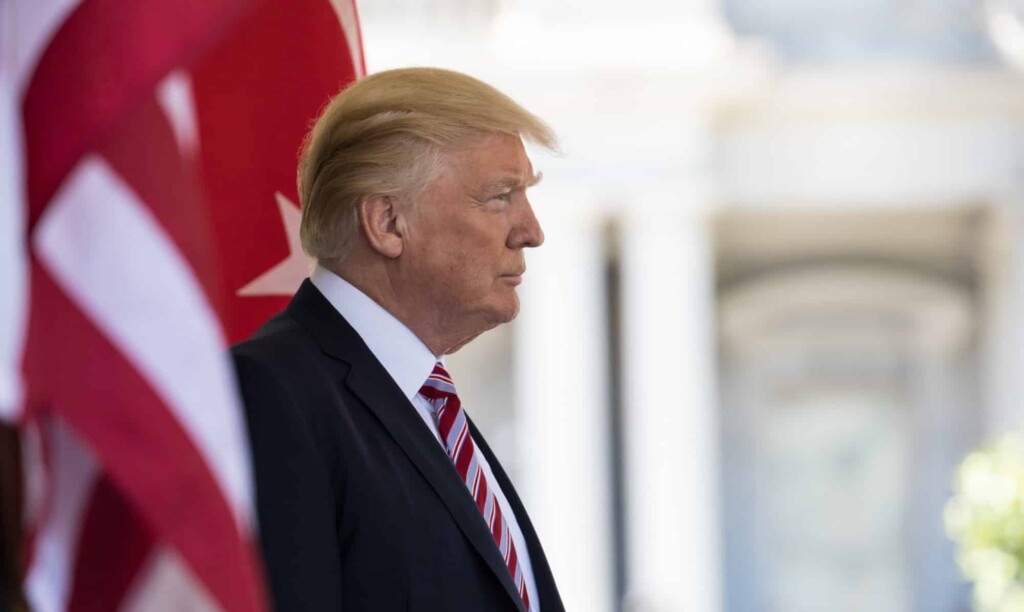
After the fall of Bashar Assad‘s regime in Syria, the incoming Trump administration faces a complex set of challenges. Despite President-elect Donald Trump’s promise to reduce U.S. involvement overseas, completely disengaging from Syria may not be a viable option.
The interim government led by Hayat Tahrir al Sham has shown little intention of quickly transitioning to an elected government. Instead, it has proposed a lengthy four-year timeline, signaling Abu Mohammad al Jolani’s ambition to maintain power. Jolani, a U.S.-designated terrorist with past ties to al Qaida and the Islamic State group, has claimed he intends to build an inclusive and tolerant government. However, his actions tell a different story. Early moves by HTS suggest a commitment to implementing Sharia law, introducing an Islamist curriculum for children, and appointing officials with ties to extremist ideologies.
The outgoing Biden administration and European allies are uncertain about whether Jolani can be trusted. Western delegations, including those from Germany and the United Kingdom, are considering removing HTS from their terrorist lists — a step that would be premature and perilous. Jolani’s moderate rhetoric is undermined by concrete actions that lean toward extremism.
However, these developments should not distract the Trump administration from its primary objectives in Syria. The United States does not need to engage in nation-building but must continue its support for the Syrian Democratic Forces. This support is essential to prevent a resurgence of the Islamic State group and to monitor the HTS-led government, discouraging it from developing into an extremist regime akin to the Taliban.
Maintaining U.S. involvement will be challenging, especially given pressure from Turkey. President Recep Tayyip Erdogan is likely to urge Trump to withdraw U.S. forces and let Ankara handle Syria. While this might align with Trump’s “America First” policy, it could destabilize the region. Turkey’s interests often clash with those of the SDF, given the group’s ties to the Kurdistan Workers Party, which Turkey views as a terrorist organization.
Turkey-backed militias, operating under the Syrian National Army, have already clashed with the SDF in areas such as Manbij, with broader conflict possible in Kurdish-majority areas such as Kobane and Qamishli. Ankara has also provided air support to these militias, further escalating tensions. Turkey has demanded the SDF disband and Kurdish leaders leave Syria, a move that would jeopardize the Kurds’ safety and autonomy.
A Kurdish autonomous administration governs northeast Syria, ensuring civilian protection and preventing the Islamic State group from regrouping. Jolani’s HTS government appears sympathetic to Turkey’s plans to dismantle this autonomy. Iraqi Kurds have also aligned with Erdogan, labeling the SDF as terrorists. If the U.S. abandons the SDF, two likely outcomes emerge: an Islamic State group resurgence and a prolonged conflict between the SDF and Turkish-backed forces, possibly leading to a wider regional war.
The Kurds are open to negotiations but will resist any imposed statelessness. The Biden administration has signaled its support for the SDF by establishing a military base in Kobane. It remains to be seen whether Trump will maintain this commitment.
Another critical concern is Israel. Jolani has remained silent about his stance on Israel, even as Israeli forces occupy parts of Syria’s Golan Heights. Israel fears an Islamist regime in Syria, especially one sympathetic to Erdogan. Turkey’s hostility toward Israel, exemplified by Erdogan’s son leading pro-Hamas rallies, raises further concerns. Given Turkey’s past support for HTS, there is little to assure Israel that Jolani will not align with Erdogan’s agenda.
None of these challenges offer simple solutions. The sudden overthrow of Assad by jihadist groups has left Syria in a precarious state. Trusting Jolani’s transformation from extremist to moderate leader is risky. History provides cautionary examples, including Erdogan, who initially promised democratic reforms but later steered Turkey toward authoritarianism.
While Erdogan’s rule cannot be equated with Jolani’s extremism, the dangers of legitimizing HTS are clear. The U.S. must maintain its modest commitment to the region, supporting the SDF and deterring the rise of another extremist regime. Abandoning Syria at this juncture could have catastrophic consequences for regional stability and global security.
